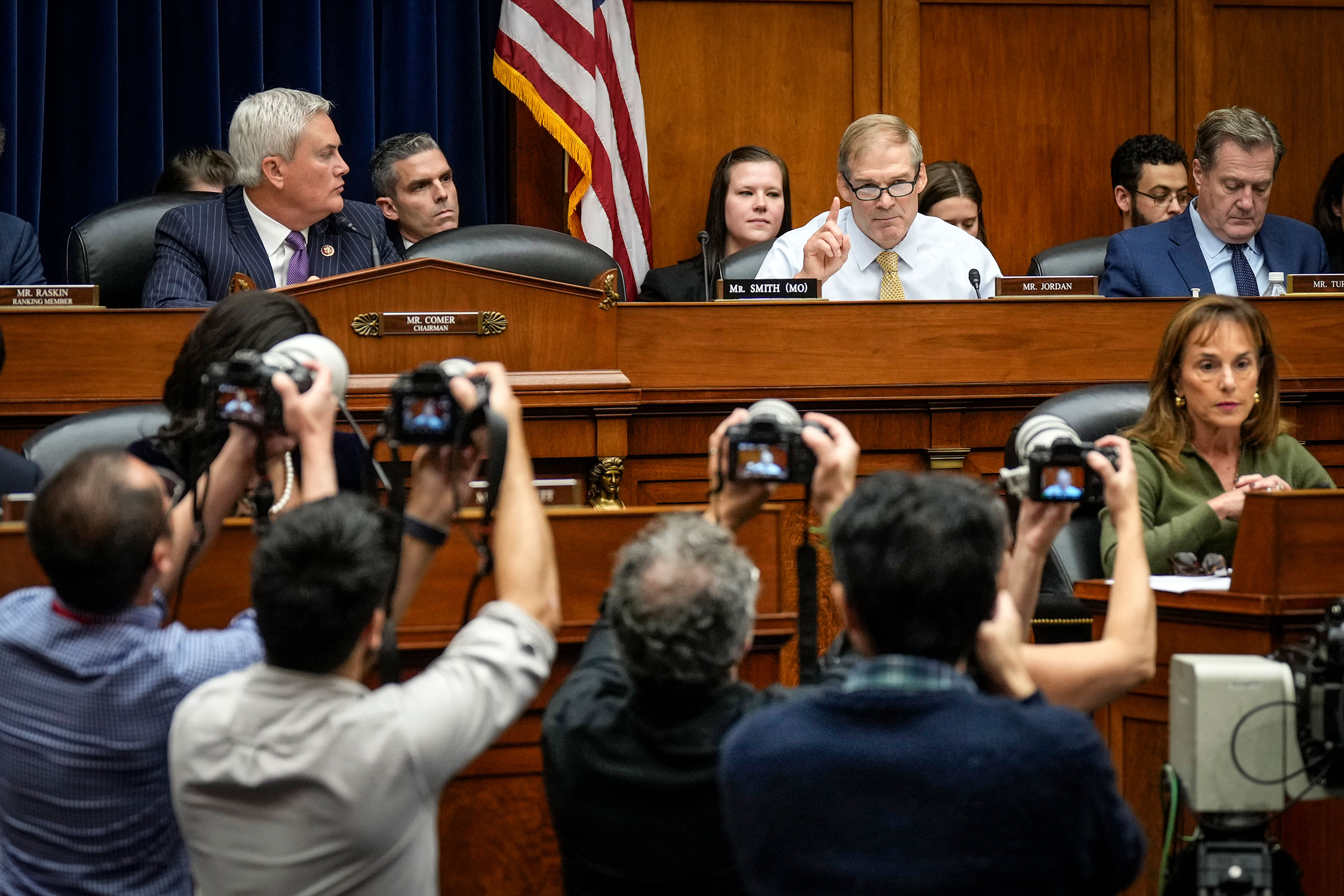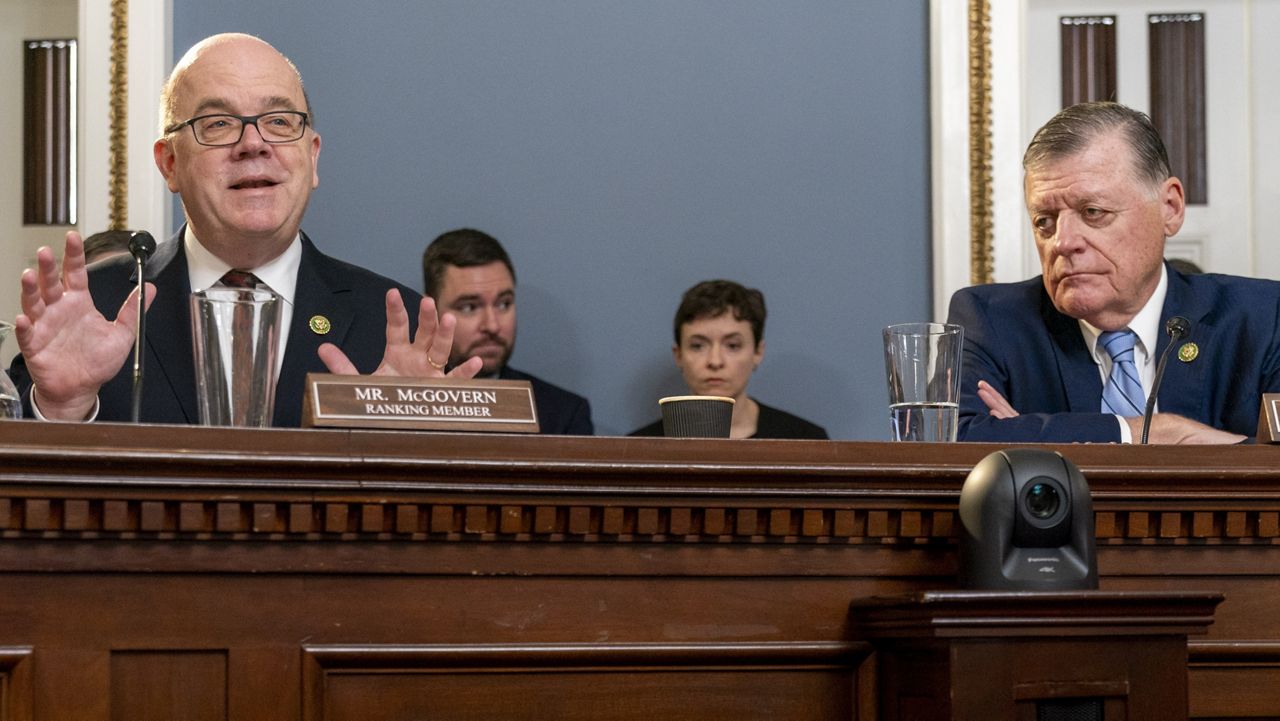Supreme Court Justices can be impeached for lying to Congress, but a trial in the Senate is required, and a conviction requires a two-thirds majority vote. In cases where Justices have been impeached, it has been for offenses such as improper communications or lying under oath.
However, the likelihood of a Supreme Court Justice being impeached for lying to Congress is currently low due to the difficulty of securing the necessary votes for conviction.

Credit: www.cnn.com
Impeachment Of Supreme Court Justices
Impeachment is a crucial mechanism to hold Supreme Court Justices accountable for any misconduct or violation of the law. While impeachment is more commonly associated with the removal of presidents, it can also be used to address the actions of Supreme Court Justices. This process allows Congress to investigate and potentially remove a Justice from their position if they are found guilty of offenses, including lying to Congress.
The history of impeachment of Supreme Court Justices is not extensive, but it serves as a reminder of the importance of ensuring judicial integrity. One such case is the impeachment of Samuel Chase in 1804. Chase was accused of displaying political bias in his judicial decisions, and although he was acquitted by the Senate, this case demonstrated that Justices could face impeachment.
In recent times, the topic of impeachment of Supreme Court Justices gained attention during the confirmation of Justice Brett Kavanaugh. However, it should be noted that no Justice has been impeached solely for lying to Congress.
| Justice | Year | Outcome |
|---|---|---|
| Samuel Chase | 1804 | Acquitted by the Senate |
While the possibility of impeaching Supreme Court Justices for lying to Congress exists, it is important to note that the process is complex and requires sufficient evidence and support from Congress. This ensures that any potential impeachment is not used as a means of political retribution, but rather as a tool to maintain the integrity of the judiciary. The historical cases of impeachment serve as reminders of the importance of holding Justices accountable to ensure a fair and impartial legal system.
Grounds For Impeaching Supreme Court Justices
In the United States, the impeachment process allows for the removal of public officials, including Supreme Court justices, from their positions if they are found guilty of specific misconduct or abuse of power. This process ensures that the judiciary remains independent and upholds the integrity of the justice system. This blog post will delve into the grounds for impeaching Supreme Court justices, particularly focusing on misconduct and abuse of power, lying to Congress, and other criminal offenses.
Misconduct And Abuse Of Power
Supreme Court justices, just like any other public officials, can be impeached for engaging in misconduct or abusing their power. This can include actions that violate ethical standards, undermine the impartiality of the court, or compromise the integrity of the judicial process.
Examples of misconduct and abuse of power that may lead to impeachment proceedings include:
- Bribery or accepting inappropriate gifts
- Making biased or prejudiced decisions
- Engaging in conflicts of interest
- Exhibiting improper conduct during court proceedings
Lying To Congress
Supreme Court justices can also face impeachment for lying to Congress. When testifying before Congress, whether during confirmation hearings or in other proceedings, justices are expected to provide truthful and accurate information.
If a justice is found to have deliberately lied under oath or provided false information to Congress, it may be considered perjury and can lead to impeachment proceedings.
Other Criminal Offenses
In addition to misconduct, abuse of power, and lying to Congress, Supreme Court justices can be impeached for other criminal offenses. Justices, like any individual, are not immune to the law and can be held accountable for their actions.
Examples of other criminal offenses that may result in impeachment include:
- Committing a felony
- Engaging in fraudulent activities
- Participating in illegal bribery schemes
It is essential to note that the impeachment process is a serious and complex one. While these grounds exist for impeaching Supreme Court justices, the process requires examination, investigation, and ultimately a decision reached by the Senate through a trial.
Can Supreme Court Justices Be Impeached For Lying To Congress?
Supreme Court Justices are appointed to the highest court in the land and are expected to uphold the integrity of the judicial system. But what happens if a Justice lies to Congress? Can they be held accountable through impeachment?
Legal Accountability Of Supreme Court Justices
The impeachment process serves as a mechanism of accountability for individuals in positions of power. While Article III, Section 1 of the U.S. Constitution states that Justices “shall hold their Offices during good Behaviour,” it also grants Congress the power to impeach and remove judges, including Supreme Court Justices, for “high crimes and misdemeanors.”
While lying to Congress is not explicitly mentioned, perjury is considered a serious offense. If a Supreme Court Justice were to lie under oath during a confirmation process or while testifying before Congress, it could be argued that such an action constitutes a breach of “good Behaviour” and qualifies as a “high crime.”
Precedents And Arguments
Although no Supreme Court Justice has been impeached for lying to Congress, historical precedents and argumentative frameworks shed light on this possibility.
One argument is that if Justices are held to the same ethical standards as other government officials, lying under oath should result in impeachment. After all, perjury is widely regarded as a serious offense in legal proceedings.
On the other hand, opponents argue that the confirmation process itself is not meant to be a criminal trial, and therefore, lying during this process should not warrant impeachment. They argue that Justices should be judged based on their legal interpretations and decisions rather than their truthfulness during confirmation hearings.
Ultimately, the decision to impeach a Supreme Court Justice lies with Congress. If the majority of Senators agree that lying to Congress is a “high crime” worthy of removal from office, then impeachment proceedings may commence.
In Conclusion
The question of whether Supreme Court Justices can be impeached for lying to Congress remains a topic of debate and speculation. While there are arguments on both sides, no definitive precedent has been set. It would require a rigorous examination of constitutional interpretation and political will for such an impeachment to take place.

Credit: ny1.com
Political Considerations And Challenges
Supreme Court Justices cannot be impeached for lying to Congress unless they undergo a trial in the Senate and two-thirds of the senators vote to convict them. The process of impeaching a Justice requires a significant majority and is therefore unlikely to happen.
Partisan Dynamics In Impeachment
Impeachment of Supreme Court Justices for lying to Congress is a highly politicized process. Partisan dynamics play a crucial role in determining the outcome of such impeachments. Due to the lifetime tenure of Supreme Court Justices, political affiliations become a significant consideration in the decision-making process.
When a Justice is accused of lying to Congress, the political party controlling the House of Representatives has the power to initiate impeachment proceedings. However, the success of the impeachment largely depends on the political makeup of the Senate, which ultimately votes on the conviction.
Practical Implications
Impeaching a Supreme Court Justice poses significant practical challenges. It requires substantial evidence of the Justice’s false statements to Congress. Moreover, the Constitution stipulates that a Justice can only be removed from office through impeachment. This means that the process must be followed meticulously and adhered to the highest legal standards.
A successful impeachment requires a two-thirds majority vote in the Senate, which can be difficult to achieve due to potential political biases and partisan divisions. Additionally, impeachment proceedings against Supreme Court Justices are relatively uncommon, further adding to the challenges in this process.
Furthermore, impeaching a Justice for lying to Congress raises questions about the interpretation of perjury and the intent behind the false statements. Proving intent can be particularly challenging, as it requires understanding the motivations and mindset of the Justice at the time of making the false statement.
Overall, the impeachment of Supreme Court Justices for lying to Congress presents significant political considerations and practical challenges. Partisan dynamics, legal complexities, and the need for substantial evidence all contribute to the difficulty of successfully impeaching a Justice in such cases.
The Debate Surrounding Impeachment Of Supreme Court Justices
Supreme Court justices can be impeached for lying to Congress, but it requires a trial in the Senate where two-thirds of the senators must vote to convict. This process ensures accountability and upholds the integrity of the judicial system.
Supporters’ Perspectives
Supporters of impeaching Supreme Court justices for lying to Congress argue that it is essential to maintain integrity and accountability within the judicial system. They believe that justices, like any government official, should be held to the highest standards of honesty and transparency. Supporters contend that lying to Congress undermines the trust and credibility of the judiciary, and therefore, removal from office is necessary to preserve the integrity of the Supreme Court.
Additionally, supporters argue that allowing justices to lie without consequences sets a dangerous precedent. They believe that if a justice can lie under oath without facing any repercussions, it opens the door for further misconduct and erodes public confidence in the judicial system. Impeachment, according to supporters, ensures that justices are held accountable for their actions and deters future dishonesty.
Opponents’ Perspectives
Opponents of impeaching Supreme Court justices for lying to Congress assert that impeachment should only be used for serious offenses that directly affect a justice’s ability to perform duties or violate their “good Behaviour” requirement as stated in the Constitution. They argue that making false statements, while unethical, may not warrant removal from office.
Opponents also contend that impeachment for lying to Congress could be a slippery slope, leading to an over-politicization of the Supreme Court. They raise concerns that if impeachment becomes a tool used by one political party against justices from the opposing party, it could significantly undermine the independence and impartiality of the judiciary. Opponents argue that other means, such as public censure or disciplinary actions, could be more appropriate for addressing instances of dishonesty by Supreme Court justices.

Credit: www.amazon.com
Frequently Asked Questions On Can Supreme Court Justices Be Impeached For Lying To Congress
On What Grounds Can A Supreme Court Justice Be Impeached?
A Supreme Court justice can be impeached on the grounds of committing a crime or lying under oath. Removal from office requires a trial in the Senate and a two-thirds majority vote for conviction.
Can Congress Remove Supreme Court Justices From Office?
Congress has the power to remove Supreme Court justices from office through impeachment, as stated in the Constitution.
What Happens If A Supreme Court Justice Commits A Crime?
If a Supreme Court justice commits a crime, they can be impeached by Congress and removed from office.
Can The Senate Deny A Supreme Court Justice?
The Senate can deny a Supreme Court justice, but it requires a trial and a two-thirds vote to remove them from office.
Can Supreme Court Justices Be Removed From Office?
Yes, Supreme Court Justices can be removed from office through the process of impeachment.
Conclusion
In light of the question, “Can Supreme Court Justices Be Impeached for Lying to Congress,” it is clear that the process of impeachment for Supreme Court Justices is a complex and arduous one. While there have been cases of impeachment for other offenses in the past, removal from office specifically for lying to Congress requires a trial in the Senate and a two-thirds majority vote for conviction.
So, while it is technically possible, it remains a challenging endeavor. The integrity and accountability of the judiciary system are crucial, and any allegations of dishonesty should be thoroughly investigated and addressed.

